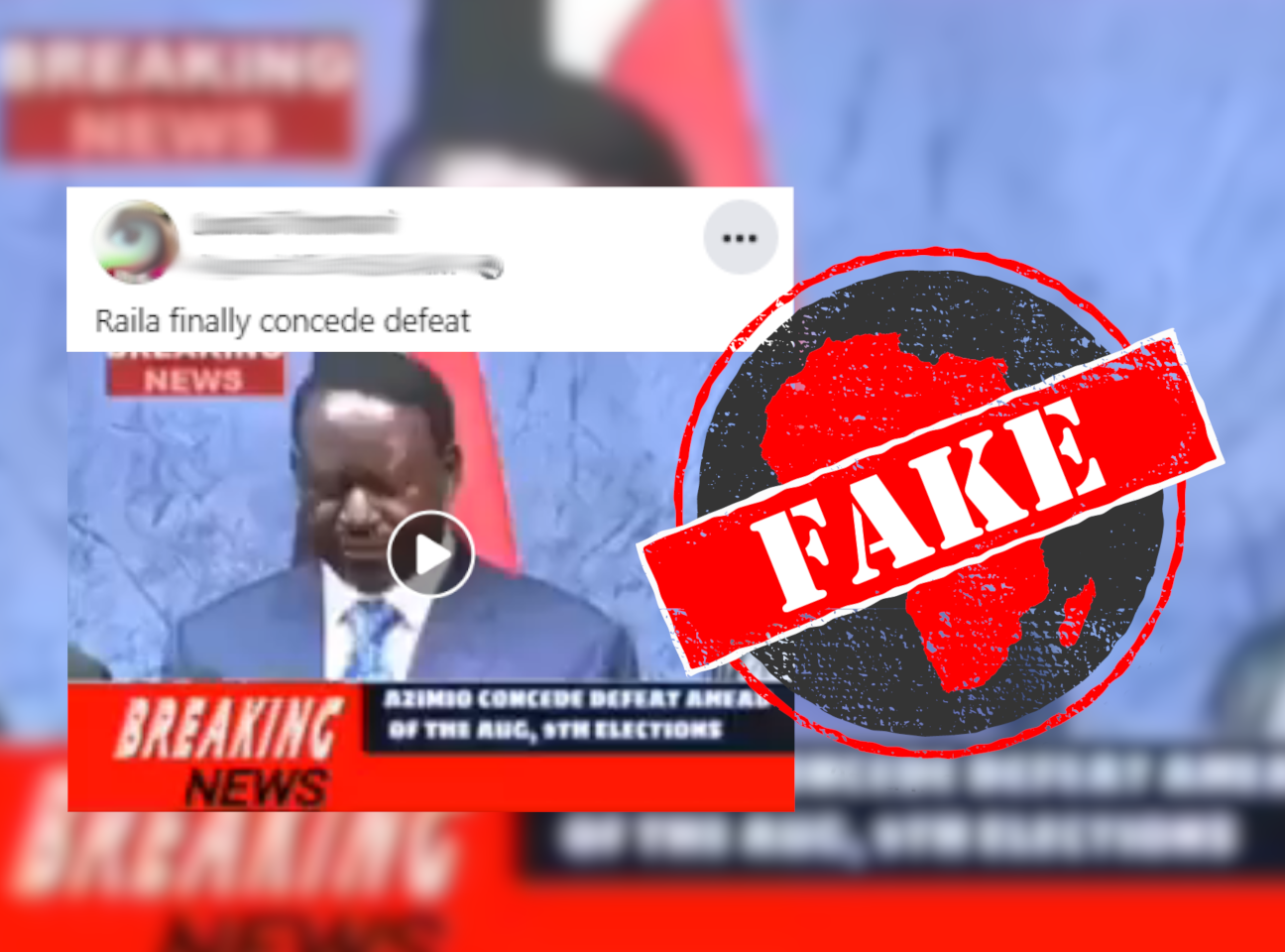“Raila finally concede defeat,” reads the caption to a video circulating on Facebook.
In the 30-second clip, Raila Odinga, one of four presidential candidates in Kenya’s August 2022 general elections, is heard saying: “I wish the president-elect honourable William Ruto and his team well.”
On 15 August the Independent Electoral and Boundaries Commission declared Odinga’s main rival William Ruto the president-elect. The IEBC said Ruto received 50.5% of the vote.
Odinga has rejected the result and is challenging it in court. The supreme court will hear his petition this week. Its ruling is due on 5 September.
But did Odinga really concede to Ruto?

Clip from 2013 video of concession speech
We searched the keywords “Raila Odinga concedes defeat” on YouTube. From the results we found the original source of the clip.
It is from a video posted on the YouTube channel of Kenyan radio station Capital FM Kenya on 30 March 2013. In the longer video, Odinga is seen addressing the press moments after the supreme court delivered an unanimous decision to uphold Uhuru Kenyatta’s win in the 2013 general election.
Odinga also ran for president that year, with veteran politician Kalonzo Musyoka as his running mate.
In the longer video Odinga says: “I wish the president-elect honourable Uhuru Kenyatta and his team well.”
The clip now doing the rounds has been edited to replace “Uhuru Kenyatta” with “William Ruto”, making it appear that the speech is from 2022.
Odinga has not conceded, and the clip is fake.
Republish our content for free
For publishers: what to do if your post is rated false
A fact-checker has rated your Facebook or Instagram post as “false”, “altered”, “partly false” or “missing context”. This could have serious consequences. What do you do?
Click on our guide for the steps you should follow.
Publishers guideAfrica Check teams up with Facebook
Africa Check is a partner in Meta's third-party fact-checking programme to help stop the spread of false information on social media.
The content we rate as “false” will be downgraded on Facebook and Instagram. This means fewer people will see it.
You can also help identify false information on Facebook. This guide explains how.





Add new comment